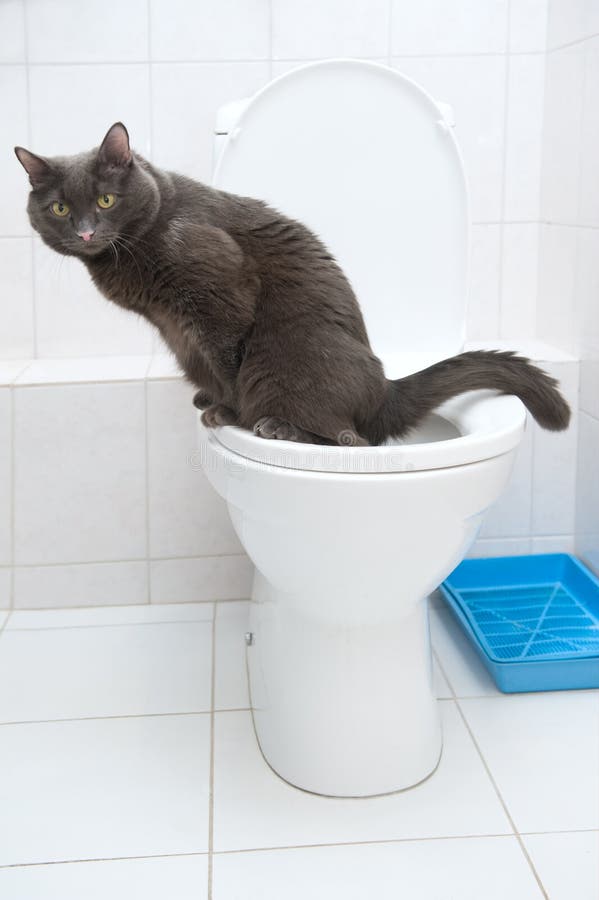Prevent Plumbing Problems: Don't Flush Cat Poop Down Your Toilet - Expert Guidance
Prevent Plumbing Problems: Don't Flush Cat Poop Down Your Toilet - Expert Guidance
Blog Article
The publisher is making a number of good points on the subject of Don’t flush cat feces down the toilet overall in this great article below.

Introduction
As feline proprietors, it's necessary to be mindful of exactly how we get rid of our feline good friends' waste. While it might seem practical to purge cat poop down the toilet, this technique can have damaging repercussions for both the environment and human wellness.
Alternatives to Flushing
The good news is, there are safer and extra liable ways to take care of cat poop. Consider the following options:
1. Scoop and Dispose in Trash
One of the most usual approach of dealing with pet cat poop is to scoop it right into a biodegradable bag and toss it in the trash. Make certain to utilize a dedicated trash scoop and throw away the waste quickly.
2. Usage Biodegradable Litter
Opt for naturally degradable pet cat litter made from products such as corn or wheat. These clutters are environmentally friendly and can be safely disposed of in the trash.
3. Hide in the Yard
If you have a backyard, take into consideration burying cat waste in an assigned location far from veggie yards and water resources. Make certain to dig deep adequate to prevent contamination of groundwater.
4. Install a Pet Waste Disposal System
Invest in a pet waste disposal system specifically designed for cat waste. These systems make use of enzymes to break down the waste, lowering smell and ecological effect.
Health and wellness Risks
In addition to ecological problems, purging pet cat waste can also present wellness dangers to humans. Feline feces may include Toxoplasma gondii, a parasite that can create toxoplasmosis-- a potentially severe health problem, specifically for pregnant women and people with damaged immune systems.
Ecological Impact
Purging cat poop presents dangerous microorganisms and parasites into the water, positioning a substantial risk to water ecosystems. These pollutants can adversely influence aquatic life and compromise water high quality.
Verdict
Liable animal ownership prolongs past providing food and shelter-- it also involves correct waste monitoring. By refraining from purging cat poop down the toilet and opting for alternative disposal methods, we can decrease our ecological impact and shield human health and wellness.
Why You Should Never Flush Cat Poop Down the Toilet
A rose by any other name might smell as sweet, but not all poop is created equal. Toilets, and our sewage systems, are designed for human excrement, not animal waste. It might seem like it couldn’t hurt to toss cat feces into the loo, but it’s not a good idea to flush cat poop in the toilet.
First and foremost, assuming your cat uses a litter box, any waste is going to have litter on it. And even the smallest amount of litter can wreak havoc on plumbing.
Over time, small amounts build up, filling up your septic system. Most litter sold today is clumping; it is made from a type of clay that hardens when it gets wet. Ever tried to scrape old clumps from the bottom of a litter box? You know just how cement-hard it can get!
Now imagine just a small clump of that stuck in your pipes. A simple de-clogger like Drano isn’t going to cut it. And that means it’s going to cost you big time to fix it.
Parasitic Contamination
Believe it or not, your healthy kitty may be harboring a nasty parasite. Only cats excrete Toxoplasma in their feces. Yet it rarely causes serious health issues in the cats that are infected. Most people will be fine too if infected. Only pregnant women and people with compromised immune systems are at risk. (If you’ve ever heard how women who are expecting are excused from litter cleaning duty, Toxoplasma is why.)
But other animals may have a problem if infected with the parasite. And human water treatment systems aren’t designed to handle it. As a result, the systems don’t remove the parasite before discharging wastewater into local waterways. Fish, shellfish, and other marine life — otters in particular — are susceptible to toxoplasma. If exposed, most will end up with brain damage and many will die.
Depending on the species of fish, they may end up on someone’s fish hook and, ultimately on someone’s dinner plate. If that someone has a chronic illness, they’re at risk.
Skip the Toilet Training
We know there are folks out there who like to toilet train their cats. And we give them props, it takes a lot of work. But thanks to the toxoplasma, it’s not a good idea.

I hope you enjoyed reading our piece about How to Dispose of Cat Poop and Litter Without Plastic Bags. Thanks so much for spending some time to read through our content. Loved our review? Please share it. Let other people check it out. Bless you for your time. Visit again soon.
About Report this page